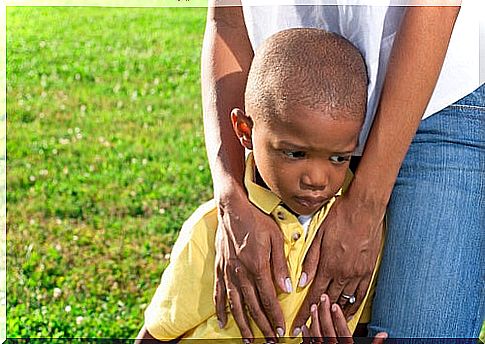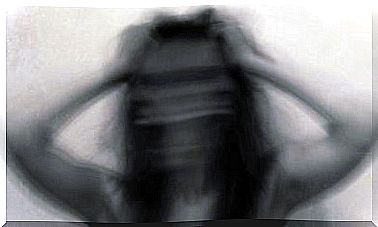Grief In Children

Putting words to the death of a loved one is difficult and more if we have to communicate it to our children.
Death is an inedulous fact, it is part of our life. We all face it at some point, so it is important to provide ourselves with resources and skills that help us in the best possible way, in the task of facing the reality that happens to us and helping the little ones.
If a very close family member or friend dies, each person experiences a host of sensations and feelings, which is part of the grieving process. In the case of children, they do not always go through it in the same way as adults, due to the characteristics of childhood.
This is mainly due to emotional, social and psychological conditions that are not yet 100% developed.
Thus, the reaction of a child to the loss depends on the evolutionary moment in which he is, on the external circumstances, the situation and the attitude of the adults around him.
But, we have very little preparation for the elaboration of a duel, since we do not usually talk about death or terminal illnesses, nor about abandonments or divorce.
By learning a little about this stage, which we will inevitably go through at least once in our life, it will be easier to overcome it.
This does not mean that before the death of a father or brother we will be happy, but that the suffering will be channeled in another way.
In children, it can happen that they still do not understand very well what happens in life and that people die. This is the first reason why a little one goes through grief in a different way than adults.
This process will be conditioned by various factors, as we said before, age, emotional and cognitive abilities, health status, relationship with the deceased person, accompaniment of family and close friends, repetition of this episode in his life, the possibility of doing therapy with a psychologist, etc.
The ability to understand death will depend on how the child has been taught about it. It is a very frequent mistake of parents, not wanting to talk “about this topic” so as not to scare or sadden him. However, we should not wait for someone in the family to pass away to explain some things about it.
In many cases, the fact of knowing that the grandmother or the father “are in heaven” or that they “take care from the clouds”, which is popularly said, leads them to a kind of magical dream or thought, which allows them to feel less the pain of loss. But when we grow up, this “excuse” does not reach us, we do not let that story be an incentive for suffering or emptiness.
We all feel the need to protect children from the pain and suffering caused by the death of a loved one, therefore, children are taught to live far from death.
But it is essential that children know the truth, gradually and according to what they can or cannot assimilate, depending on the evolutionary moment in which they are. What is important to make clear is that we should not say anything false, since in this way all we do is take children away from their process of growth and acquisition of resources.
On the other hand, it is worth saying that children need to be next to the people they love, especially their parents, in order to reach their evolutionary development.
In the event that the father or mother of the child dies, it is necessary to contain a very close relative, who , while not supplanting someone who is not there, at least allows the child not to feel so helpless in the world.
Thus, children to express their grief, they also do so through emotions. Taking care of different things at a certain time, such as drawing, painting, or going to the park, can ease the pain. Their moods are changeable while they are in the grieving stage (which also, they do not even know that they are going through it).
At times, it may seem that they have even forgotten about the deceased person, but in reality the grief is “transformed” into another emotion.
They are allowed, just because they are children, to play and have fun, something that is forbidden to adults. It is not well seen that a man or a woman go to a disco when their mother died two days ago, for example. Although they will not have the courage to do so, in the case of the little ones, it is recommended that they spread out and relax a little. How? As children do, playing.
“ Being able to mourn the death of a loved one properly and face the loss before it occurs, when it occurs and especially afterwards, makes the child unable to feel guilty, depressed, angry or scared. When we help our children heal from the pain caused by the deepest emotional wound of all – the death of a loved one – we are equipping them with important skills and understanding that will serve them for the rest of their lives . ” (William C. Kroen)









